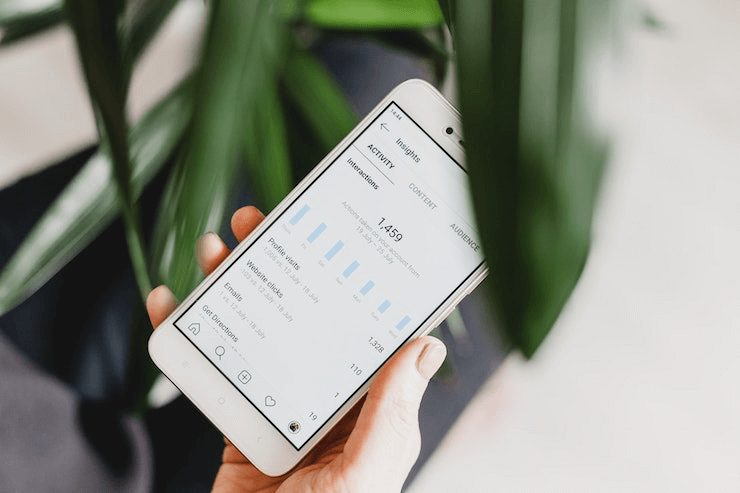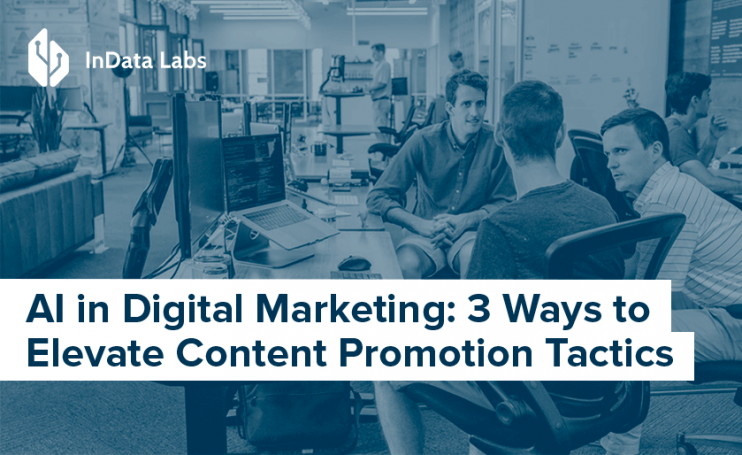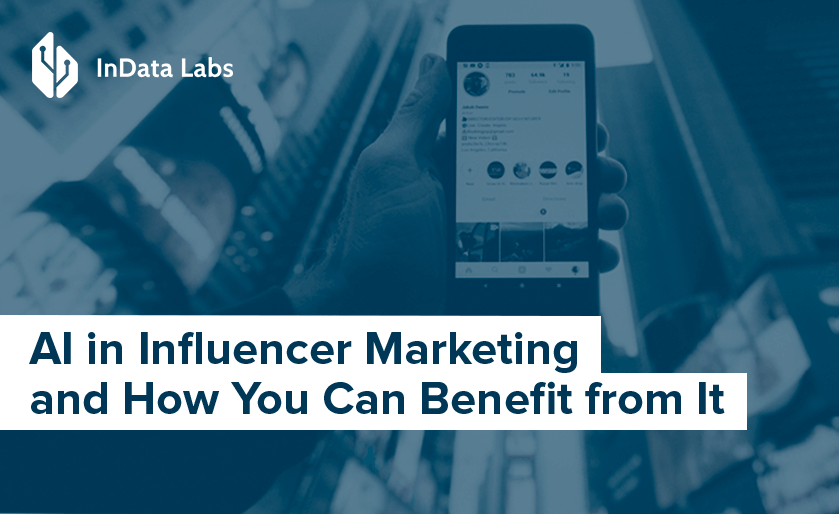AI is finally within reach of small and mid-size companies.
Should you try it, too?
Depends on how high you want your business to go.
I mean you can assemble something like an automation workflow yourself. Say, design a three-email nurturing campaign to send to clients who downloaded a lead magnet like eBook. It’s also not a problem to share a blog article on social media once in a few weeks.
But what happens when your goals become more ambitious? What if you’ve got 10 lead magnets and multiple blog posts coming up every week?
If you invest in content creation, you need to promote it anywhere your potential customers are. But that’s not always possible if you’re a small or mid-sized business.
That’s where AI in digital marketing comes in. It can be a huge help even for those without large content promotion teams.
In this post, you’ll learn three effective ways to get more leads and customers with AI content marketing.
1. Find Relevant Influencers Easier and Faster
One big misconception about small businesses is that they don’t use influencer marketing because of the high cost. This couldn’t be further from the truth. Many influencers price their services a bit too high, but they comprise just a small share of the available options.
In fact, 25 percent of small businesses use influencers to create content for their social media channels. For them, influencer marketing is an accessible and effective way to get leads and sales because people trust influencers more than brands.
That’s why influencers are poised to become a major source of revenue for small businesses. Especially, in the post-COVID world, where customers will be more cautious about spending money.
So, how does AI in digital marketing fit in the picture here?
It helps with solving the biggest issue: finding quality, relevant influencers with real audiences.
An AI algorithm that provides influencer analytics, for example:
- searches for relevant influencers across millions of social media accounts, thus saving you a bunch of time on manual search.
- finds influencers based on your custom criteria, e.g. industry, country, language, size of the audience.
- generates accurate characteristics of influencers’ audiences (your potential customers), so you know if a particular influencer is the right fit for your campaign.
- is easily integrated into other apps because it comes as an API.
So, integration of this algorithm doesn’t only save tons of time, but also helps with finding the right influencer for your campaign. So, you don’t have to have a huge marketing team working on this project for weeks.
By taking a good look at how an influencer performs and what kind of audience he or she attracts, you’ll be much more likely to choose the one that can help you sell.

Source: Unsplash
And the last thing is that AI influencer analytics algorithms are surprisingly affordable. For example, you can get a full overview of an influencer account’s analytics – sentiment analysis, audience reachability, etc. – for about $0.2.
Read full guide: AI in Influencer Marketing and How You Can Benefit from It.
2. Promoting Blog Content At the Right Time
Ask any content writer when to publish blog articles on social media and they will tell you the same thing.
You should post it at the time when your audience is online and engaged.
But how do you know exactly when your customers are online?
Of course, there are some decent predictions that you can make. Say, don’t post on Saturday because people are focused on other things. Still, it’s far from enough.
Besides, the peak engagement times on social media change all the time, so keeping up with them can be really hard.
AI and machine learning in digital marketing is the technology that can help with that. A well-trained algorithm can learn how you post and what kind of engagement you get, to define the best posting times.
Plus, the algorithm can do so continuously, so you can keep up with changing engagement times.

Source: Unsplash
Here’s what the algorithm can give digital marketers:
- show when the content you post on social media generates the most engagement.
- predict the posting times for future to attract maximum engagement based on historical data.
- define the best-performing content and even the most engaging parts within pieces of content.
And here’s the best news about machine learning.
If you use machine learning services, the algorithm or a tool can be created based on the unique performance data and requirements of your business. This means that the insights and tips it generates will be personalized.
Ultimately, using AI in marketing can improve the performance of your content on social media. On top of that, the historical engagement data can also show the most popular content to create in the future.
Read more: AI Project Success: How to Create a Valuable Solution.
3. Check how Customers React to Your Content with Sentiment Analysis
Another big advantage of AI-powered content creation and marketing is that you can determine if your content causes negative, neutral, or positive reactions.
The technology’s name is pretty simple – customer sentiment analysis, but the way it uses AI to analyze customer feedback is anything but.
Unlike a basic sentiment assessment technology that considers words to define particular reactions (if it finds the word “great” in a social media post, it sorts it out as a “positive” reaction), AI-powered sentiment analysis uses sentence fragments.
It works as an AI text analysis software that uses natural language processing methods to find words, phrases, and sentence fragments that suggest a particular reaction you need to know.
Let’s demonstrate with a simple example.
The Facebook post below praises a company but contains words that a simple sentiment analysis tool might not pick up.
One example is that it uses “happier” instead of “happy,” which would’ve been much easier to detect for a simple tool.

Besides, a basic tool can also have trouble with interpreting the phrase “we couldn’t be happier.” It could be perceived as a plausible sign of negative experience, so the sentiment analysis data might be inaccurate.
On the other hand, an AI-powered tool can recognize the sentiment correctly because it’s trained to interpret entire sentences. So, it’s more likely to get sarcasm and determine deeper context – negative, neutral, or positive.
By studying the analytics provided by sentiment analysis, you’ll know how to improve your content marketing strategies by creating content that offers the most value as well as personalized experience for customers.
Artificial Intelligence and Content Marketing: More Than Just Promoting
Implementing AI in content promotion isn’t just about finding ways to get more exposure. It’s a comprehensive approach that also impacts content creation and analysis.
Thanks to sophisticated algorithms that have finally put AI within reach of small and medium-sized businesses, you can also try this amazing technology to improve your content marketing results.
Hopefully, this was a good introduction to the world of AI content management and promotion that inspired you to learn more about the technology.
Keep in mind that with the right technology, even a small business can offer the same kind of content experience as its competitors with large content teams!
Learn more: How AI is Changing Business [Now & in the Future].
Author’s bio. Daniela McVicker is a passionate digital marketer. Daniela is interested in everything related to SEO and blogging. She collaborates with Topwritersreview and other websites where she shares her experience and helps marketers make their names in the online world.
Start Your Next AI Development Project in Marketing & Advertising with InData Labs
Have a project in mind but need some help implementing it? Drop us a line at info@indatalabs.com, we’d love to discuss how we can work with you.


